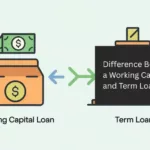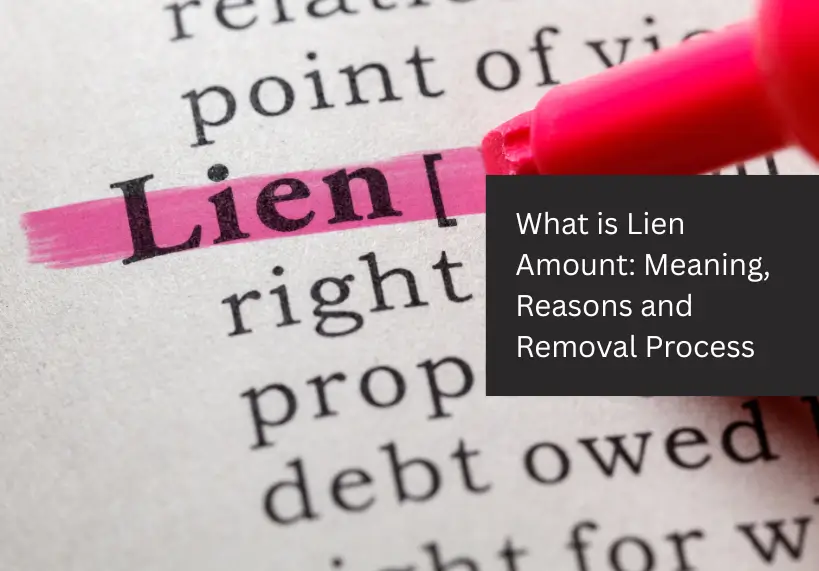
Have you ever wanted to invest in a company without being a partner? Non-convertible debentures can be a good option as these debt securities provide a fixed return without the potential for capital gains from equity ownership.
But what do debentures mean?
Debentures are debt securities that companies issue to raise funds. They’re essentially loans that the company takes from investors. In return for this loan, the company pays interest payments to the investors over a specified period.
There are primarily two types of debentures – convertible and non-convertible debentures.
Convertible debentures can be converted into equity shares of the company under certain conditions, giving the investor the potential for capital gains in addition to interest payments. Whereas, non-convertible debentures cannot be converted into equity shares. Investors are solely entitled to interest payments.
Non-convertible debentures have a relatively stable income flow, as investors receive regular interest payments. However, they also have limited potential for major capital gains.
Here, we will be talking about non-convertible debentures in detail.
What are Non-Convertible Debentures?
Non-convertible debentures (NCDs) are a type of fixed-income investment where companies raise funds by issuing debt to investors. Unlike convertible debentures, NCDs do not give investors the option to convert their investments into company shares or equity. Instead, the investors get fixed interest payments for a specific period, and at maturity, the company must repay the principal amount along with any remaining interest.
These debentures are generally issued by well-established companies. The interest rates on NCDs are often higher than other debt instruments, making them an attractive option for investors looking for higher returns. These interest payments can be made on a monthly, quarterly, or annual basis, depending on the terms of the debenture.
How do Non-Convertible Debentures work?
Non-convertible debentures are a way for companies to raise money for various purposes, such as business expansion, managing working capital, or refinancing debt.
NCDs are similar to fixed deposits but have a few differences. While both offer fixed returns, NCDs can be traded on stock exchanges, and investors can buy or sell them before the maturity date.
Each NCD investment comes with a predefined amount, which may change depending on the issuers. The interest rate, known as the coupon rate, is also set by the issuer. For example, if you invest Rs. 50,000 in an NCD with a 4% interest rate, you will earn Rs. 2000 as an annual interest. The company lists these NCDs on stock exchanges, which are often offered on a first-come, first-serve basis.
At the end of the NCD maturity date, the company must return the principal amount to the investor. While NCDs can offer higher returns, it is important to have a good credit rating as the investors depend on this for the safety of the investment.
Types of Non-Convertible Debentures: Secured and Unsecured
Non-convertible debentures are usually of two main types – Secured and Unsecured.
1. Secured NCDs
Secured non-convertible debentures are backed by the issuer’s assets, like property or machinery, as a guarantee. If the issuer fails to make payments, investors can claim these assets, providing extra protection. This reduces the risk of loss for investors. Moreover, because of this added security, the interest rates on secured NCDs might be slightly lower than those on unsecured NCDs.
2. Unsecured NCDs
Unsecured non-convertible debentures don’t require any collateral, meaning no assets are used as security. This makes them riskier because investors can lose money if the company fails to pay. Unsecured NCDs’ interest rates are often higher to make up for this associated risk, attracting investors looking for better returns.
Since these NCDs depend entirely on the company’s financial health, credit ratings are important in determining how safe they are. A good rating means less risk, while a poor rating suggests more risk.
So, which is better, secured or unsecured NCDs?
Choosing between secured and unsecured NCDs depends on how much risk an investor is willing to take and what returns they expect. Secured NCDs are safer because of collateral, while unsecured ones offer higher returns but with more risk. It’s important to review the company’s credit rating and financial condition before investing.
Who Can Invest in Non-Convertible Debentures (NCDs)?
The following can invest in non-convertible debentures:
1. Institutional Investors
Institutional investors that can invest in NCDs include:
- Banks, such as commercial, cooperative, and regional rural banks
- Public financial institutions and statutory corporations (e.g., LIC, GIC, UTI)
- Insurance companies
- Mutual funds
- Pension funds
- Foreign portfolio investors
- National Investment Funds
- Venture capital funds or Alternate Investment Funds (AIFs)
2. Non-Institutional Investors
Non-institutional investors eligible to invest in NCDs include:
- Corporates, including cooperative societies and registered body corporates
- Trusts
- High Net Worth Individuals (HNIs)
- Public, charitable, or private trusts authorized to invest
- Partnership firms and LLPs, in the name of their partners
- Scientific or research institutions authorized to invest in NCDs
3. Individual Investors
Individual investors who can subscribe to NCDs include:
- Resident Indians
- Hindu Undivided Families (HUFs) through their Karta
- Non-resident Indians (NRIs), subject to specific regulatory approvals
However, there are certain restrictions:
- Individuals under 18 years of age are not eligible.
- NRIs and foreigners may only invest if the issuer obtains specific approvals.
It is important to review the issuer’s eligibility criteria and any regulatory guidelines before investing in NCDs.
How to Purchase NCDs?
Non-convertible debentures (NCDs) can be purchased either through a broker or directly on the stock exchange where they are listed. To invest, investors need to open a Demat account and submit the application form along with necessary documents, such as KYC details. Once listed, NCDs can also be traded in the secondary market, similar to stocks.
Factors To Consider Before Investing In Non-Convertible Debentures
Non-convertible debentures (NCDs) are usually offered based on a company’s credit rating and how well it manages its debt. If a company borrows more than it can handle, its credit rating can drop, increasing the risk of default on the NCDs.
Here are some factors to consider before investing in NCDs:
1. Issuer’s credit rating
The credit rating reflects a company’s ability to secure funds and meet its financial obligations. Since NCDs do not have the option of converting to equity, they majorly rely on the issuer’s ability to repay. It is advisable to invest in companies with a credit rating of AA or higher for added security.
2. Debt level
It is important to review the issuer’s financial statements and consider factors such as the company’s asset quality and debt-to-equity ratio before investing in a non-convertible debenture. A healthy balance sheet portrays a lower risk of default.
3. Capital adequacy ratio (CAR)
The capital adequacy ratio measures whether the company has enough capital to withstand potential losses. A higher ratio indicates the company is financially sound and capable of managing risks.
4. Provisions for non-performing assets
Provisions for non-performing assets refer to funds that a company sets aside to account for potential losses from loans or investments that are not performing as expected. The company needs to allocate these provisions regularly, as this indicates its ability to generate sufficient profits to offset possible losses.
5. Interest coverage ratio
The interest coverage ratio shows how well a company’s income can cover its interest payments. A higher interest coverage ratio shows that the company can meet its debt obligations, reducing the risk for investors.
Conclusion
Non-convertible debentures are a good option for investors who want regular income with higher interest rates than other savings options. However, NCDs come with some risks because they depend on how financially strong the issuing company is.
It’s important to check the company’s credit rating, debt levels, and overall financial health before investing. If you do your research, NCDs can be a great way to expand your investments and earn steady returns over time.
Frequently Asked Questions
Who can invest in NCDs?
NCDs are open to many investors, including individuals, institutional investors, high-net-worth individuals (HNIs), corporates, and trusts. Retail investors, such as resident Indians and Non-Resident Indians (NRIs), can also invest in NCDs under certain conditions.
Are NCDs safe to invest in?
How secure NCDs are largely depends on the creditworthiness of the issuing company. Companies that have higher credit ratings are generally safer to invest in, as they are more likely to have good financial management. However, NCDs can be unsecured, meaning they are not backed by any collateral, which adds a layer of risk.
How are NCDs different from convertible debentures?
The main difference is that NCDs cannot be converted into equities of the issuing company, whereas convertible debentures can. NCDs are purely debt instruments and offer higher interest rates than convertible debentures, which have the potential for capital appreciation through equity conversion.
What is the interest rate on NCDs?
Interest rates on NCDs vary based on the issuing company and market conditions, but they are generally higher than traditional fixed-income options like fixed deposits. Unsecured NCDs may offer even higher rates to compensate for the increased risk.
Can I sell NCDs before maturity?
Yes, NCDs are tradable on stock exchanges, which means you can sell them before their maturity date. However, the price of NCDs in the secondary market may fluctuate based on interest rates and the company’s performance, so you may not always be able to sell them at face value.
What is the minimum investment amount for NCDs?
The investment amount required for NCDs depends on the issuing company and the terms of the public offering. It can start from as low as ₹10,000, but you must check the specific terms of each issue.






